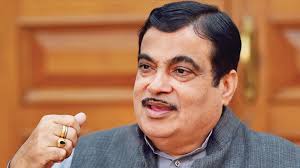In his speech at the National Ayurveda Festival and Shree Vishwa Lecture Series’ launch in Nagpur, Union Minister Nitin Gadkari emphasized Ayurveda’s revolutionary potential in curing a range of incurable conditions. He underlined that Ayurveda, an age-old medical system, has shown effective in treating conditions like cancer, asthma, and gastrointestinal problems—diseases that are sometimes challenging to treat with traditional treatment. But Gadkari emphasized that in order for Ayurveda to stay relevant, it must change and keep up with developments in contemporary medicine.
The Sri Vishwati Ayurvedic Hospital and Research Centre, in association with the Sri Sadguru Vishwanath Maharaj Rukdikar Trust, is organizing a three-day festival with the objective of raising awareness of the relevance of Ayurveda in the modern era. Attending the inauguration were notable Ayurvedic figures: Dr. Jayant Devpujari, president of the Government of India’s Indian System of Medicine; Anandanath Maharaj, president of the Sadguru Vishwanath Maharaj Rukdikar Trust; Rajesh Kshirsagar, executive president of the Maharashtra State Planning Commission; and Suresh Sharma, director of Baidyanath Ayurved.
Gadkari commended the advancements in Ayurvedic science and acknowledged the usefulness of Panchakarma therapy in Ayurveda in treating chronic diseases. But he also noted that more innovation is needed, especially in the fields of diagnosis and raising the caliber of Ayurvedic medications. The basis for the system’s broad acceptance is the trust that the Ayurvedic community has worked so hard to preserve and expand around the world.
The festival features a range of events like an Ayurvedic expo, free health check-up camps, treatment camps, and health awareness talks. It is anticipated to draw over 3,000 delegates from all around India. The goal of the lecture series is to give people of all ages insightful information on a range of health-related issues. There will be talks on women’s health, geriatric concerns, and healthy aging in addition to Ayurvedic rituals like “Dincharya” and “Rutucharya” for overall well-being.
In order to stimulate interest in Ayurveda among the younger generation, the festival will include events like the ‘Ayurkoushalyam’ poster and painting competition for BAMS students and the ‘Jyotishmati-5,’ a national-level quiz for Ayurvedic scholars. On September 22, notable Ayurvedic practitioners will also receive the ‘Shree Vishwasmriti Ayurveda Sanman Puraskar’ in recognition of their achievements.
This festival provides a forum for highlighting the applicability of Ayurveda and stimulates new developments and research in the field.
SOURCE :
TIMES OF INDIA








